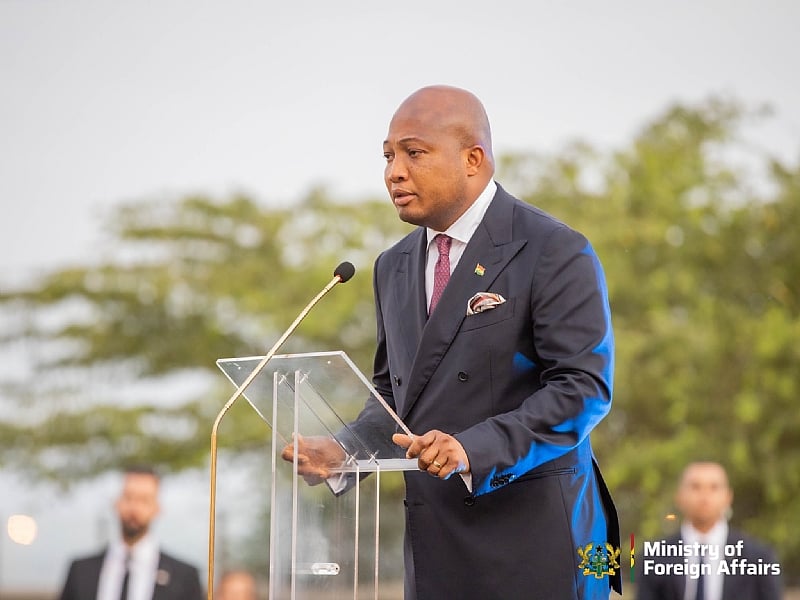The Ghanaian Ministry of Foreign Affairs has issued a statement refuting allegations that the country abstained from a vote at the 59th Session of the Human Rights Council (HRC59) to endorse LGBTQI+ rights. The ministry clarified that the vote was not about supporting LGBTQI+ rights but about protecting individuals who identify as LGBTQI+ from violence and discrimination. Ghana’s abstention from the vote, the statement explains, aligns with Article 17 of Chapter 5 of the 1992 Constitution, which prohibits discrimination based on gender, race, color, ethnic origin, religion, creed, or social and economic status. The ministry emphasized that Ghana’s stance does not condone violence or discrimination against any individual and that the country’s laws and cultural values uphold the traditional understanding of gender as male and female.
The ministry’s statement comes in response to widespread criticism and accusations on social and traditional media platforms, with many alleging that the government had abandoned its firm stance against LGBTQI+ activities. Critics had claimed Ghana had avoided a direct “yes” or “no” vote on a resolution perceived as backing LGBTQI+ rights. However, the ministry clarified that the resolution in question focused on protecting individuals identifying as LGBTQI+ from violence and discrimination, rather than endorsing or supporting LGBTQI+ rights as a whole.
The ministry stressed Ghana’s commitment to upholding its constitution, which prohibits discrimination based on various grounds, including gender. By abstaining, the government aimed to maintain consistency with this constitutional principle while also acknowledging the country’s traditional understanding of gender. The statement quoted Ghana’s Permanent Representative at the session, who reiterated the nation’s recognition of only the male and female genders, aligning with traditional definitions and cultural norms. The representative further explained that sex refers to the biological categorization of male and female, a distinction used for statistical and policy-monitoring purposes.
The ministry’s statement clarifies Ghana’s abstention as rooted in its constitutional obligation to prevent discrimination while maintaining its traditional understanding of gender. It is imperative to differentiate between protecting individuals from violence and discrimination, irrespective of their identity, and endorsing a specific set of rights or lifestyle choices, the statement implies. The ministry’s response aims to address public concerns and clarify the government’s position, emphasizing its commitment to upholding both constitutional principles and traditional values.
The clarification highlights the delicate balance that many nations face in addressing evolving social issues while upholding existing cultural and legal frameworks. Ghana’s abstention from the vote can be interpreted as a pragmatic approach, seeking to uphold its non-discrimination commitment without explicitly endorsing LGBTQI+ rights, which could be perceived as contradicting prevailing societal norms. The ministry’s detailed explanation of the nature of the vote and its rationale for abstaining serves to dispel misconceptions and address public anxieties regarding the issue.
By distinguishing between protecting vulnerable individuals from violence and discrimination and endorsing specific rights, the Ghanaian government seeks to navigate a complex social issue while maintaining adherence to its constitution and reflecting its cultural context. The ministry’s statement underscores the importance of nuanced discussion and understanding when addressing sensitive topics that involve both fundamental rights and deeply-held societal values. It emphasizes that the government’s stance is not about condoning or condemning specific lifestyles but about upholding constitutional principles and ensuring the protection of all individuals from violence and discrimination, irrespective of their background or identity.


